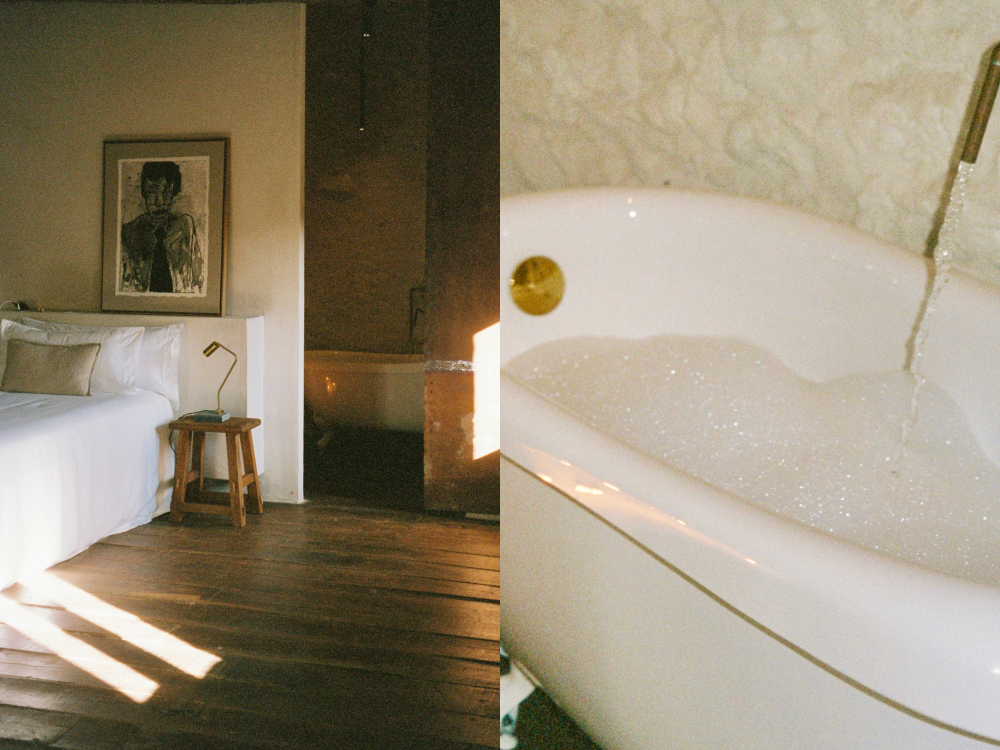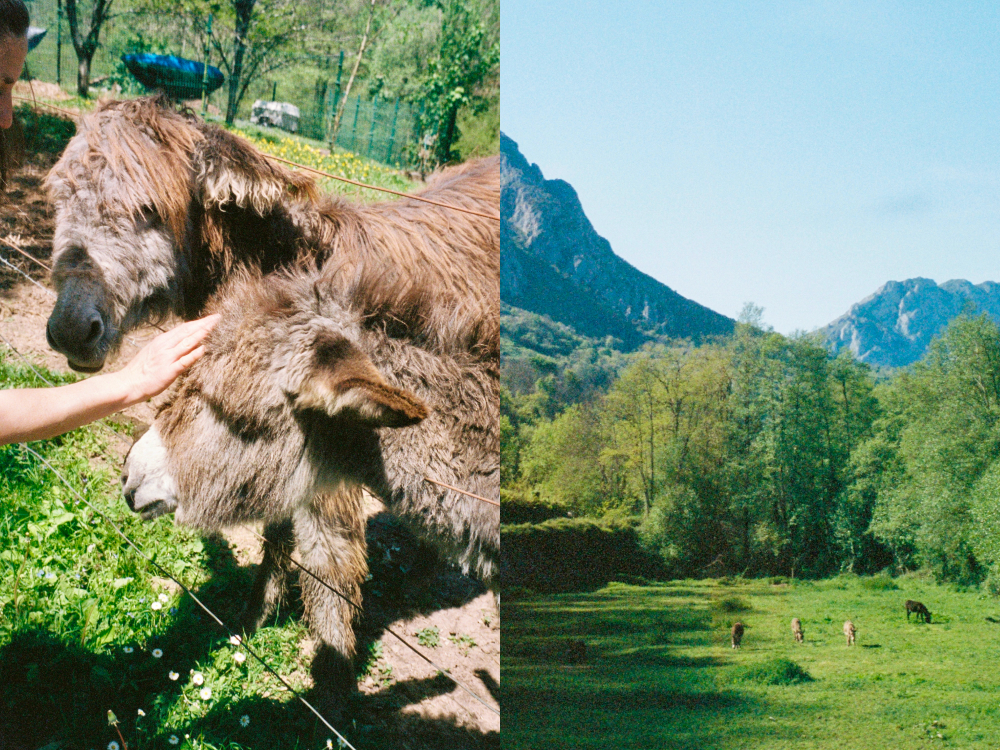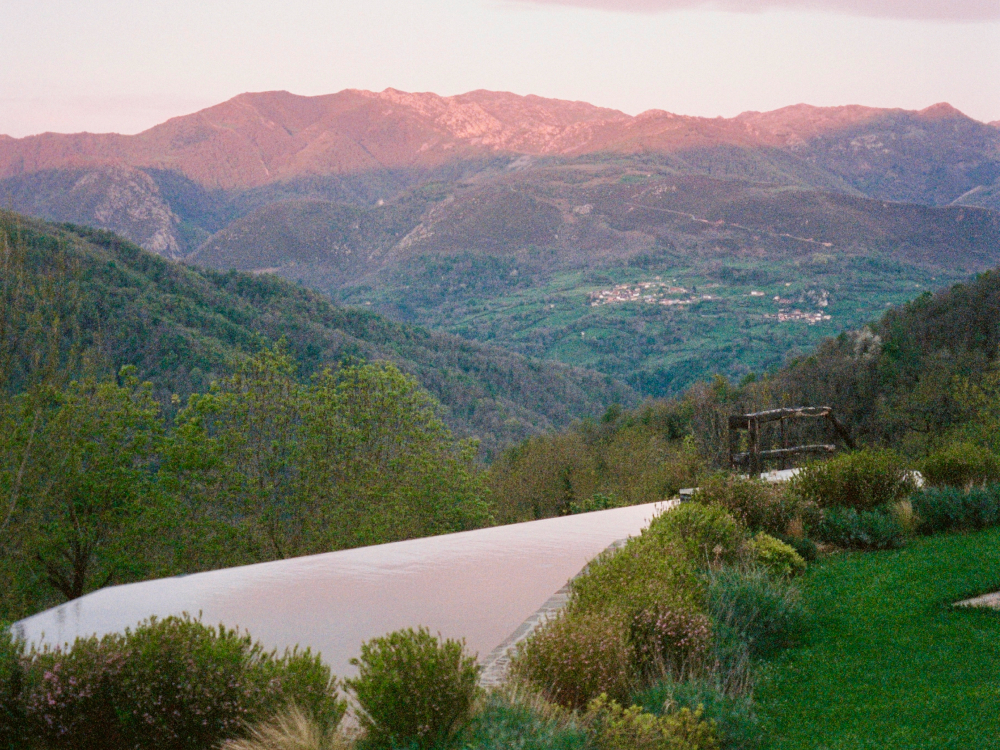After a long journey through Spain’s Asturias region, a national power cut wasn’t quite the start I had in mind for my trip at Solo Palacio, a rustic retreat amid the beech forests of Las Ubiñas Natural Park. But while my friends in Madrid scrambled over power-banks, I found myself possessed by a rare sense of calm. Sipping on a glass of local sidra, I watched as a pair of sleek black horses galloped across a hillside, while a majestic golden eagle — a common sight in this part of the world — wheeled gracefully overhead. More than an adequate substitute for screen-scrolling. In fact, the lack of electricity only served to amplify the essence of my temporary home from home — a place where the rhythms of nature take precedence. If there was a place to be during a power-cut, I thought, it was here.

Ensconced between the rolling tides of the Cantabrian Sea and the Picos de Europa mountain range, Asturias is a wild, untamed and lesser-travelled part of Spain. Around a third of the historically under-developed region enjoys some sort of conservation status. It’s an asset hotelier Carlos Diaz is well aware of and keen to protect. So, when he stumbled across a crumbling 15th-century palace amid Las Ubiñas’s misty hills and beech forests, he saw not just a ruin but an opportunity to create something that would at once safeguard and showcase this special part of the world. ‘We were looking for a location that met the following criteria: climate resilience — especially water availability — a historic building, and a setting within a natural park,’ says Diaz. ‘After two years of searching, we found the ideal place in Solo Palacio.’
Originally the palace residence of the Miranda-Quirós family (nobles whose patriarch acted as the English Ambassador in Spain), Solo Palacio’s century-old building harbours a rich history that Diaz and his partner, the designer Sofía Tejerina, were keen to preserve. During a painstaking, three-year renovation process, the pair employed local carpenters, stonemasons and even archaeologists in their mission to retain the stay’s storied character. As I checked in one sunny afternoon, their work became evident. Across 11 fabled rooms and suites, there was an acute attention to detail and palpable respect for the past. Hand-picked finds from Madrid’s flea markets, framed by gnarled beams and rafters, and the conservation of original features — flooring, chimneys, carved-wood doors — had been prioritised over modern interventions. Even the lighting was meticulously calibrated to complement the sun spilling in.
Guided by the Japanese philosophy of wabi-sabi — a concept rooted in finding beauty amid impermanence and imperfection — the interiors had been stripped of all superfluous elements, letting nature and history do the talking. Rooms revealed traces of their former lives through subtle interventions; the chicken wire, for example, which was elegantly fitted into an antique staircase, hinted at the space’s time as an animal enclosure, or the old ovens on display in the former servants’ quarter. ‘Sofía won Spain’s national Laus Design Award for this project because she embraced the principles of wabi-sabi: simplicity, sobriety and humility,’ Diaz told me. ‘Everything is designed to enhance the pleasure of what is seen and touched.’

But the hotel’s ethos informs more than its aesthetic — it shapes its very way of being in the world, an Earth-kind approach that prioritises co-existence, recognising humanity’s dependence on nature, rather than the other way around. And as the hotel’s Environmental Ambassador, Diaz’s core concern is climate change. As he explained, ‘We need to heal the planet while keeping humans in the equation. We found in the wabi-sabi philosophy a way to do that through slow tourism, as a counterpoint to fast food and frantic consumption.’ One way Solo Palacio has achieved this is through their partnership with Monte, a Michelin Green Star restaurant where Austrian chef Xune Andrade works in harmony with nature to showcase local produce in a menu that changes according to season and availability.
Thanks in part to the hotel’s dedication, the surrounding landscape has remained a haven for wildlife, too. From the hotel’s forest-facing infinity pool (a striking contemporary feature carved beneath a 15th-century stone wall), guests may well catch glimpses of deer, wolves or bears — a species more numerous here than anywhere else in Spain. This commitment is further realised through local partnerships with organisations like Burru, a non-profit dedicated to safeguarding donkeys — gentle creatures full of personality. The ideal companions, you could say, for riding out a power outage.
During the course of that afternoon, I roamed the mountain-framed fields, learning not just about the donkeys’ habits, diet and way of life, but also their individual stories and quirks. There was Julian, for example, the original rescue and catalyst of the organisation, once timid and fearful, but now a confident and affectionate soul; Marcos, the baby of the bunch, who trailed us inquisitively, a truly curious character; and Luz, a sweet, happy female, expecting her first foal. Through first-hand interaction with these beautiful animals, guests are able to forge a genuine connection, fostering environmental awareness and respect for the land and its inhabitants, principles deeply echoed by Solo Palacio’s commitment to responsible tourism.

In a country like Spain, which has experienced a series of severe environmental disasters in recent years, from wildfires to floods, Solo Palacio offers an alternative vision for the future of tourism and beyond. The power did eventually return, but for me, the blackout served not as a disruption, but a grounding. It was a potent reminder that real connection can’t be found through a screen, but in a conscious co-existence with the environment — a philosophy that shines brightly, even when the lights are out.
Find the feel-good factor with another of our Revival Stories, exploring hyper-seasonality in Japan



